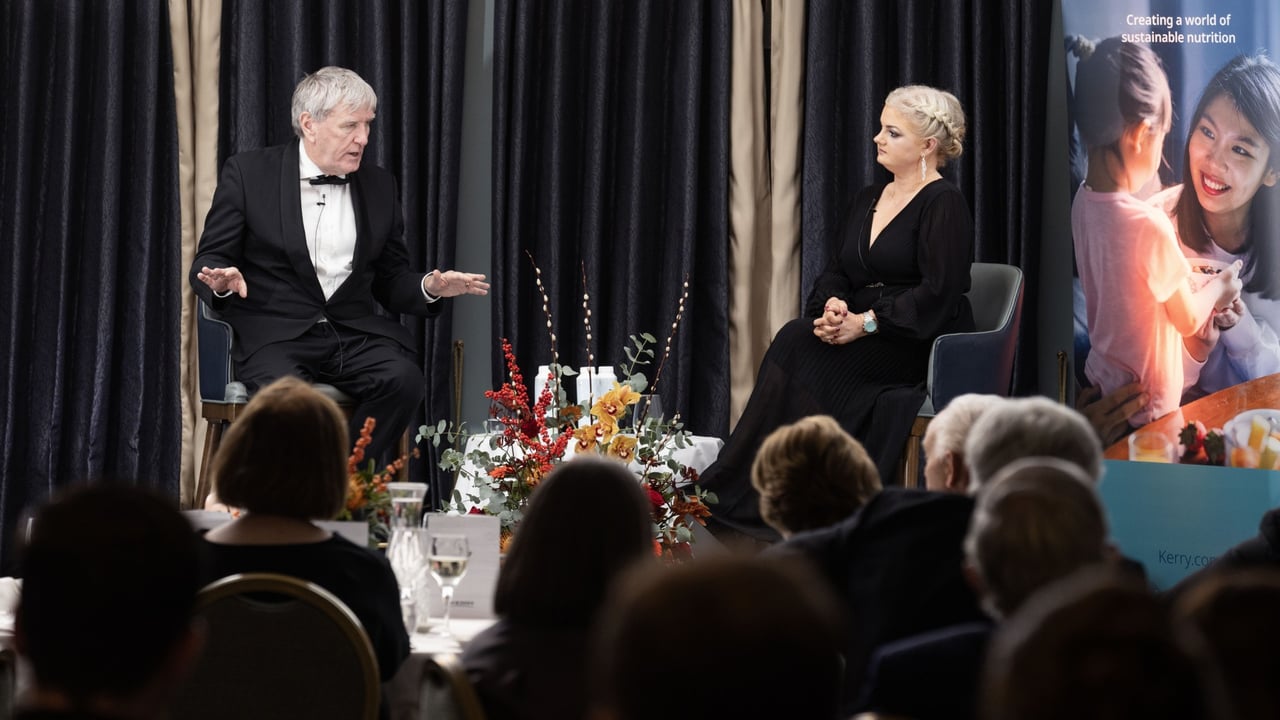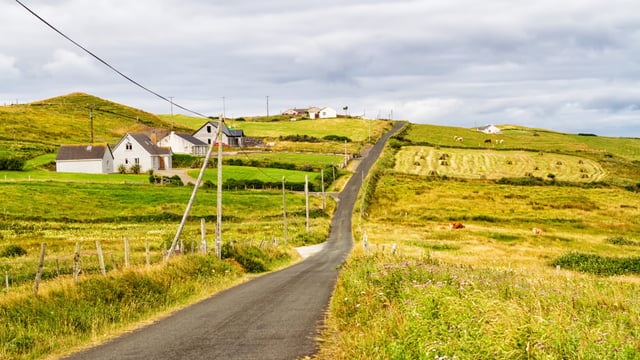Former ambassador to US talks new challenges to Irish agri-food trade
The former Irish ambassador to the US has warned that it would be "foolish to believe" that the "golden age" of the Atlantic economy will be fully restored.
Dan Mulhall, the former ambassador to the US - as well as the UK, Germany and Malaysia - delivered the Michael Dillon Memorial Lecture hosted by the Guild of Agricultural Journalists of Ireland (Agri Guild) yesterday (Thursday, November 20).
The prestigious biennial Michael Dillon Memorial Lecture, supported by Kerry Group, took place at a black tie event at The K Club, Co. Kildare.
Mulhall was ambassador during both the first Trump and the subsequent Biden administrations in the US until his retirement in 2022.
Delivering his lecture, Mulhall said that transatlantic economic relations between the US and the EU have frayed, arguing that Donald Trump "just doesn't see European countries as natural partners".
Although that situation may see a correction after Trump's term, it's unlikely to be quite the same trading relationship we've become used to, Mulhall suggested.
"He's believed in tariffs for the last 40, 50 years. So while the US pendulum will swing back to a more moderate direction, it would be foolish to believe that the golden age of the Atlantic economy will be fully restored," he said.
For that reason, the ambassador suggested, economic and trade diversification, and less dependence on the US, "needs to be the name of the game from now on".
"Whether we like it or not we are living in a changed world and we need to adjust to the new circumstances."
In a wide-ranging speech - peppered throughout with literary references, Mulhall being known for his knowledge of poetry and literature - the former ambassador also touched on issues of defence, and its importance in the modern world.
He said: "You should spend as little as you can on defence and as much as you must. At this stage it seems to me we are so out of sync with everyone else in Europe that a significant increase in defence expenditure is genuinely called for.
"We need to be more capable of looking after and protecting our shores from potential hostile threats.
"This will be a painful process as it will divert resources away from other priorities for government spending," he warned.
However, Mulhall said Ireland cannot see itself as unaffected by military conflict.
"We cannot afford to take a blanket 'nothing to do with us approach'. If European Union countries are attacked, whether we’re neutral or not it has to do with us," he said.
"It affects our security; our economic interests are at stake in these situations. At a minimum we need to keep an open mind on defence policy.
Mulhall went on to point out that countries outside of the traditional economic powerhouse of western Europe and North America are finding common ground over their rejection of "western hegemony", and that this may also be a threat to Ireland's interests.
"You have China, India and Russia coming together with other countries from that region. Now they don't agree on very much, and they’re potential enemies, and they have very different views about a whole range of things, but they've come together," he said.
"One thing that unites them is their resentment about what they would regard as the western hegemony that has been prevalent for the last 50, 60 years," the former ambassador added.
"It will of course be difficult for those countries to agree on the shape of any new world order, but what ever emerges in the future is unlikely to be as favourable to Irish interests as the open trading and investment environment that has prevailed since the end of the Cold War," he said.
"We have benefitted hugely from the opening up of trade and investment, and now that there’s a certain move towards economic nationalism, that is a threat to Ireland’s national interests.
"I think we have to face into a world where there’s going to be a much greater challenge to the kinds of things we’ve relied upon for our prosperity over the last 20, 30 years," Mulhall warned.
Solutions
With all these changes to the state of play we've become used to in international trade and bilateral relations, Mulhall stressed that diplomacy must continue to be the way forward.
"What's the solution to our troubles? There's no sure-fire approach, but as a retired diplomat, I naturally have a preference for negotiated solutions," he said.
"I am often taken by another literally quotation from Samuel Beckett: 'Fail, fail again, fail better,' and when you think about it, that could be a motto for diplomacy.
"Diplomats have to have the fortitude to ensure repeated failures on the road to success," Mulhall added.
United States
Despite his concerns over the fraying relationship between the EU and Ireland, Mulhall said in a questions and answers session after delivering his lecture that there will likely always be some place for Irish products among US imports.
"We'll always do well. We have advantages definitely in the United States, that's for sure, and those advantages are not going to go away," he said.
Mulhall added: "I think in 2019 before Covid, two million Americans came to Ireland. One-tenth of all Americans who came to Europe came to Ireland. That's an extraordinary opportunity for Ireland.
"Irish-Americans are not going to suddenly turn on us. I don't worry about exports plummeting.
"We will always do quite well in the Unites States, it will always be a major market for us, a major source of investment," the former diplomat said.
He added: "I do think that some kind of bigger effort to diversify would be a good thing for Ireland, because I think we've got to a position where we definitely are unhealthily dependent on a single market; I mean the US shouldn't be 35%, 40% of our exports, it should be maybe 20%.
"So I think we've got to get away from that complete dependence, and I think we've got to continue to work on the strength of our domestic economy," Mulhall told the Agri Guild.











